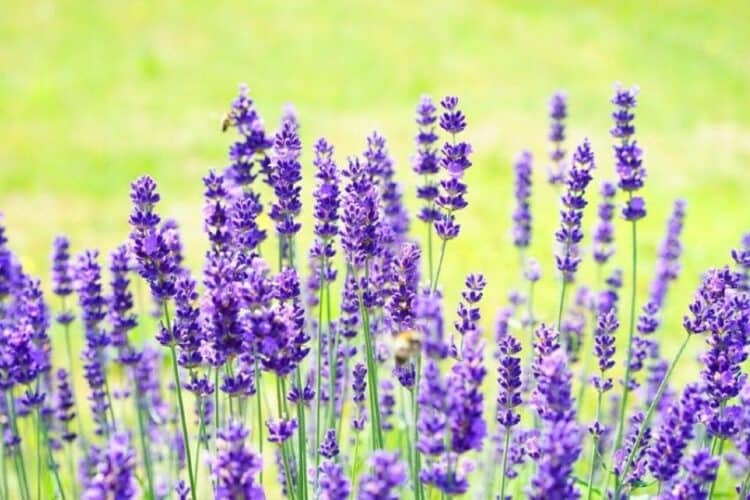Lavender is a beautiful flowering plant and a relaxing scent, commonly found in soaps, candles, and bubble baths. While you may enjoy decorating with lavender sprigs or using lavender essential oils, you might wonder if it’s okay to have these items around your cat. Can cats be allergic to lavender?
Like humans, cats can develop allergies to flowering plants like lavender. Even more concerning, however, is the fact that lavender is toxic to cats. In this article, we’ll discuss signs of lavender allergies in cats and what to do if you suspect an allergy. We’ll also show you the basics about lavender toxicity in cats, including the symptoms and how to prevent poisoning.
Signs Of Lavender Allergy In Cats
Allergies to flowering plants, including lavender, are generally seasonal in cats, meaning you won’t necessarily see symptoms all year-round. Common signs of a lavender allergy include:
- Scratching
- Sneezing, coughing, or wheezing
- Itchy, watery eyes
- Red or dry skin
- Excessive grooming
If you think your cat has an allergy, it’s time for a trip to the vet. Many allergy symptoms can also indicate other medical problems, so you’ll need professional help to make a diagnosis. Be prepared to describe any potential allergens your cat is exposed to, including lavender.
To diagnose allergies, your vet may suggest blood or skin tests similar to allergy testing in humans. Allergy treatments typically vary based on what exactly your cat is allergic to.

Lavender Toxicity
According to the ASPCA, lavender plants are toxic to cats, dogs, and horses. If your cat ingests lavender, you may notice symptoms like loss of appetite, nausea, or vomiting. Should you witness or suspect your cat has eaten lavender, contact your veterinarian for the next steps.
Lavender essential oils are another potential danger to your cat. The Pet Poison Helpline reports that cats are especially sensitive to essential oils because their livers are unable to process and eliminate them as well as other animals. Both direct contact with lavender essential oils as well as exposure to diffusers can be dangerous for your cat.
Essential oil poisoning may cause the following symptoms, depending on the type of oil and method of exposure:
- Drooling
- Trouble breathing
- Vomiting
- Tremors
- Decreased heart rate and body temperature
If your cat is exposed to lavender essential oils, contact your veterinarian. They’ll need to know the type of product used to help direct the treatment plan, so try to bring it along with you to the hospital.
Preventing Lavender Allergies And Poisoning In Cats
The easiest way to keep your feline from having any issues with lavender is to keep the plant or any related products out of your home. Never put essential oils on your cat without veterinary approval, and avoid using diffusers with your cat in the room.
Keep lavender plants out of reach of cats, ideally in a separate room. Dried lavender should be stored away from cats as well. If your cat spends supervised time outdoors, don’t plant lavender in your yard where they can access it.
Final Thoughts
If your cat is diagnosed with allergies of any kind, be sure to follow all your vet’s recommendations and treatment plans. Allergies can be frustrating to manage and require patience on your part. Because lavender is toxic to cats, err on the side of caution and avoid growing or keeping it in your home.
Featured Image Credit: Pixabay














